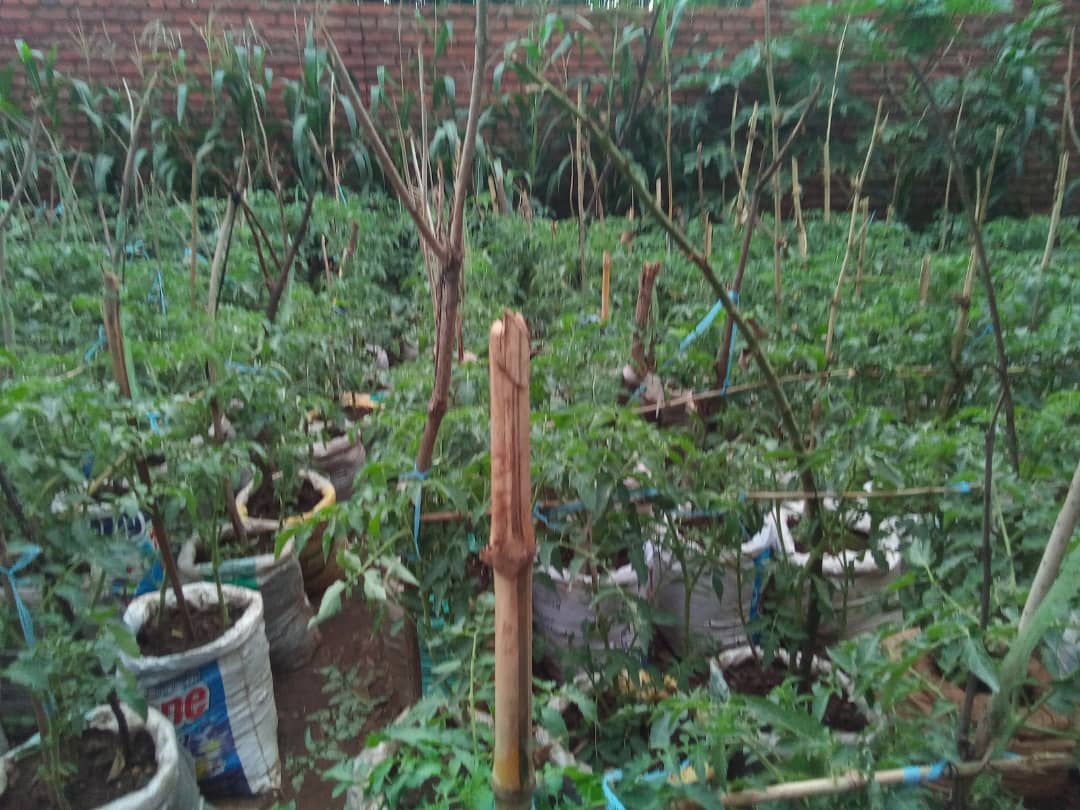By Burnett Munthali
In a remarkable display of agricultural innovation, a taxi driver from Kawale is proving that one does not need extensive farmland to engage in productive farming. Behind his modest home lies a thriving agricultural enterprise consisting of over 260 tomato plants cultivated in bags and a small poultry business with over 50 chickens.
This reporter visited his backyard and witnessed the ingenuity firsthand. The taxi driver, whose name is withheld upon request, explained how he began his venture. “I started with just one chicken and slowly grew my flock to over 50,” he shared. The chickens not only provide eggs and meat but also produce chicken manure, which he uses as an organic fertilizer for his tomato plants.
The driver’s backyard is lined with neatly arranged grow bags filled with tomato plants, all nurtured with the nutrient-rich manure. “Chicken manure is affordable, environmentally friendly, and effective,” he explained, noting that it has significantly boosted the health and yield of his tomato plants.
When asked about his expectations, the taxi driver confidently revealed his financial projections. “Once the tomatoes are ready for harvest, I expect to make over MWK 200,000,” he said, underscoring the economic potential of small-scale farming.
One of the challenges he anticipates is managing the chickens and ripe tomatoes simultaneously, as free-range chickens could easily destroy the crop. However, he has devised a simple yet effective solution: “At that time, I will erect a fence using mosquito nets to prevent the chickens from accessing the tomato plants.”
The taxi driver’s story is a testament to the power of creativity and resourcefulness in addressing urban farming challenges. By utilizing limited space and resources, he has managed to establish a sustainable farming operation that complements his taxi business.
He encourages others to consider similar ventures, emphasizing that even small pieces of land can be used productively with the right approach. “You don’t need a large farm to make an impact,” he advised. “Start small, use what you have, and build from there.”
This Kawale taxi driver’s initiative highlights the importance of innovation in agriculture, particularly in urban settings where land is scarce. His dedication to maximizing the potential of his small backyard serves as an inspiration to others, proving that with determination and creativity, it is possible to achieve financial success while contributing to food security.
As his tomatoes approach harvest, it is clear that his journey is just beginning. With continued innovation and hard work, his agricultural venture could serve as a model for others seeking to make the most of their resources.




